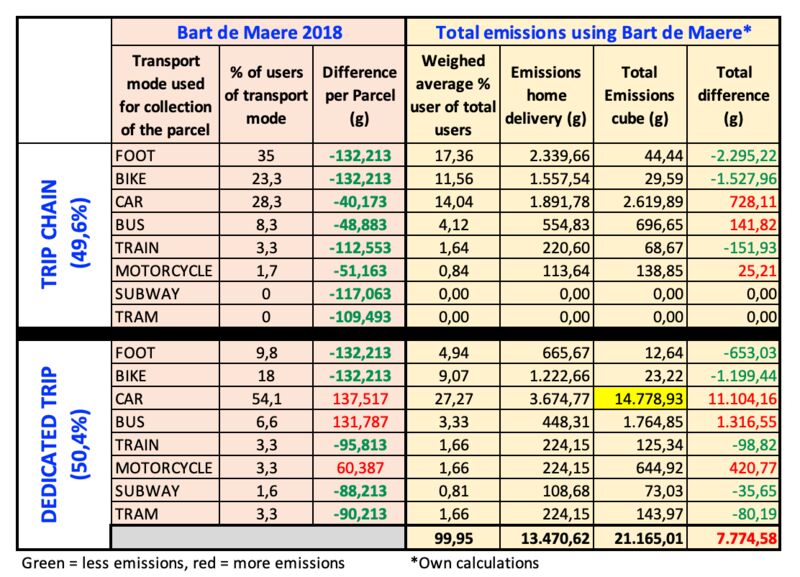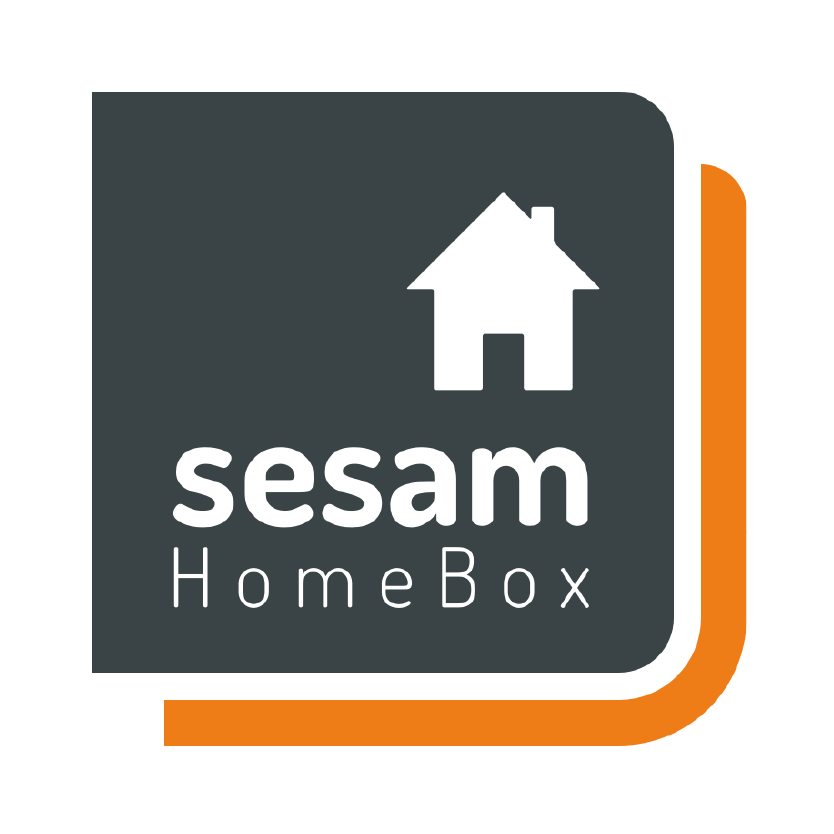
Mike Richmond (MR), Doddle, proves (involuntary) beyond any doubt that Out of Home solutions (OOH) are the LEAST sustainable Last Mile Solution.
In the week where Marek Rozycki Rozyski argued that not the parcel locker, but the consolidation of parcel volume has a positive effect on emissions, MR, in his presentation to Leaders in Logistics in Copenhagen, presented data which proves that OOH SOLUTIONS ARE THE LEAST SUSTAINABLE LAST MILE SOLUTIONS.
MRs data, (Bart de Maere’s “Ecological and economic impact of automated parcel lockers vs home delivery “(Belgium 2018)), show a reduction in emissions per parcel when defining “parcel delivered” as “Change of Liability”. This takes place at the collection point, and it then seems that lockers are reducing emissions. (Definition by Gevaers et Al 2009)
Legally this is correct but if we accept the fact that the received parcel will be taken to the recipient’s home, and calculate the numbers as researched, incl. the trip back to recipients’ home, THEN ALONE THE CAR TRAVEL RELATED TO PEOPLE WHO MAKE A DEDICATED TRIP TO PICK UP AND BRING HOME THE PARCEL (27.27%), GENERATES MORE EMISSIONS THAN HOME DELIVERY OF ALL THE PARCELS.
In total, emissions of the delivery and pick up to and from the lockers are 50% higher than doing 2Door delivery. And the data is limited to an urban geography. Extended to sub urban or even rural areas, the calculation will probably show OOH to generate at least double possible three times the emissions of 2Door delivery, as distances to the lockers and the number of people who takes a dedicated trip to pick up the parcel, are likely to increase.
Also, to be mentioned, is that the data is from 2018. Ecommerce in Belgium did not really start to grow until 2016/2017, which makes it probable that the calculated 2Door emissions are based on a far lower stop density as is the case today in Belgium, and certainly compared to the more mature markets of England, France and Germany. Whether the density and capacity of lockers have kept up with the increase in Belgium parcel volume is not known.
Quoting InPost as MR does, doesn’t help either. InPost has a very low 2Door stop density, which leads to high 2Door emissions. Quoting DHL “Parcel locker delivery has a (carrier) footprint of 38% of 2Door delivery” is a lot higher than the 1.9% used by Bart de Maere. If the DHL numbers are more correct, and including suburban and rural areas, lockers become an emission catastrophe if the Belgian consumer pick up data can be used in Germany.
It will be interesting to see how this issue is handled in the „Green Last Mile Europe Report 2022“ which will be published 6th of Apr.
Click here for the LinkedIn Post

Jesper Okkels
Founder

